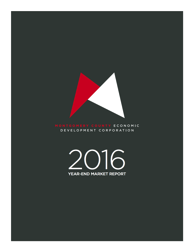
Hot off the (online) presses: the first annual Year-End Market Report produced by MCEDC. How does the employment rate in Montgomery County compare to the state? What are the biggest business highlights from last year? How does the future look for the county? Find these answers, and more.

Emergent BioSolutions Inc. (NYSE:EBS) today announced that it has received a task order from the Biomedical Advanced Research and Development Authority (BARDA) valued at up to $30.5 million to develop monoclonal antibody therapeutics for viral hemorrhagic fever. This task order will utilize the company’s Center for Innovation in Advanced Development and Manufacturing (CIADM) facility located in Baltimore, Maryland. Using monoclonal antibodies from Mapp Biopharmaceutical Inc., the company will conduct technology transfer of process materials and information, perform process and analytical method development, execute small-scale production runs, and perform cGMP cell banking leading to cGMP manufacture of bulk drug substance. The task order consists of a 36-month period of performance with a base task order valued at $7.4 million and options that, if executed, will bring the total task order value over three years to up to $30.5 million.

Which state has the nation’s most research-intensive economy? California? Massachusetts? North Carolina?
Actually it’s Maryland. A greater portion of Maryland’s economy comes from private, federal, and university research spending than any state (with the exception of rural New Mexico with its two large federal labs). But not enough of us recognize that.

Researchers from the University of Maryland College Park (UMD) and Baltimore (UMB) campuses have developed a blood test that could help doctors more quickly diagnose schizophrenia and other disorders. Their study, "Redox Probing for Chemical Information of Oxidative Stress," was recently published in the journal Analytical Chemistry.
"We hope our new technique will allow a more rapid detection and intervention for schizophrenia, and ultimately lead to better outcomes," said Gregory Payne, one of the authors and a joint professor with UMD's Fischell Department of Bioengineering (BIOE) and the Institute for Bioscience and Biotechnology Research (IBBR).
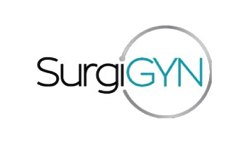
Gynecological surgery device developer SurgiGyn said today it inked an exclusive license arrangement with the University of Maryland, Baltimore for laparoscopic surgical device technology developed at the University.
The Baltimore, Md.-based company said it also closed a seed round of funding from UM Ventures and a private investor, with funds slated to support accelerated development of its uterine electrosurgical device
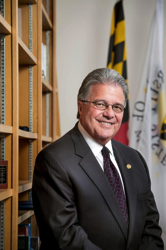
On the first two days of February, I testified before Maryland legislative committees in support of Governor Larry Hogan's FY 2018 budget proposal for the University System of Maryland (USM).
Governor Hogan has proposed state support for USM of $1.35 billion. This is an increase of $26.6 million --- or approximately 2 percent --- over the final FY 2017 budget, which includes the November Board of Public Works reduction of $14.2 million.

Build the MoCo STEM community by attending this free event for educators from pre-K to college, business leaders and employers, County Councilmembers, county government leaders and service providers, industry practitioners, interested parents and students. We are showcasing best practices, laying out a vision and asking for input on an effective STEM engagement strategy for Montgomery County.
12:30pm - 1pm: Networking and STEM Demonstrations

Orgenesis Inc. (OTCQB: ORGS), a fully-integrated cell therapy and contract development and manufacturing company, announced that its Belgian subsidiary, Orgenesis SPRL, has received the formal approval from the Walloon Region, Belgium (Service Public of Wallonia, DGO6) for a budget of EUR 12.3 million ($12.8 million) support program for the GMP production of AIP cells for two clinical trials that will be performed in Germany and Belgium. The project support will be for a period of three years commencing on January 1, 2017.
Of the approved amount, a total of EUR 3.3 million is budgeted for a development work at our Belgian-based subsidiary, MaSTherCell S.A.
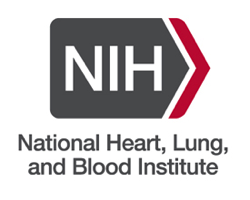
Funding and Research Opportunities
The following funding opportunity announcements from the NHLBI or other components of the National Institutes of Health, might be of interest:
Notices:
- Impact of Washington, DC Area Federal Office Operating Status on NIH Grant Application Due Dates
- Notice of NIA's Participation in PA-17-101 "Research on the Health of Women of Underrepresented, Understudied and Underreported (U3) Populations - An ORWH FY17 Administrative Supplement (Admin Supp)"
- NHLBI Priorities for HIV Research and Funding
- Notice of NLM's Participation in PA-17-101 "Research on the Health of Women of Underrepresented, Understudied and Underreported (U3) Populations An ORWH FY17 Administrative Supplement (Admin Supp)"

Thursday February 16, 2017 from 5:00 PM to 7:00 PM EST
Join BioBuzz and founding sponsor The Johns Hopkins University Montgomery County Campus at Growlers in Gaithersburg on February 16th for our 1st networking event of 2017. The Johns Hopkins University Montgomery County Campus offers part-time graduate courses in several disciplines, including education, biotechnology and liberal arts. Students attend classes in the evenings and on Saturdays, enabling them to hold full-time jobs during the day. Depending on the degree area, students can fully complete their coursework in Montgomery County. Other students take some courses in Baltimore and/ or online.

Scientists are no strangers to having their work questioned by lawmakers, and now they are fighting back.
On April 22, scientists and their supporters will hold a March for Science to advocate for science and evidence-based research in policies. The main march will be held in Washington, D.C., and satellite marches will be held in other cities, as they were with the Women’s March the day after the inauguration. And the march’s organizers say they aren’t just fighting for more funding for science, or more influence in policy, but also to raise awareness about the type of research they’re doing.
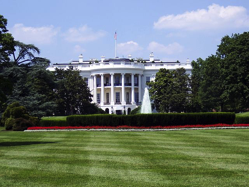
The recent flurry of activity around the Affordable Care Act (ACA) has many people confused about where it stands, and what the employer's obligations are. The following summarizes the activity so far.
Legislative Repeal Activity
A popular meme suggests that the Senate voted to eliminate virtually all of the provisions of the ACA, including the ability to obtain insurance in spite of pre-existing conditions, the requirement to cover adult children up to the age of 26, etc. This is not the case.
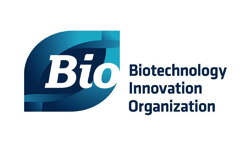
The Biotechnology Innovation Organization (BIO) issued the following statement regarding President Trump’s comments today supporting biopharmaceutical innovation:
"We look forward to working with President Trump and his team to enact policies that ensure better access to and affordability of today’s medicines and the vision the President laid out in his inaugural address ‘….to free the earth from the miseries of disease, and to harness the energies, industries and technologies of tomorrow.’ The ideas the President laid out in his meeting today--policies that would cut unnecessary regulation, enforce fair trade, increase competition, support small companies' ability to attract capital and strengthen and promote market-based solutions--are ideas that BIO has been advocating for and working to build consensus on with others in the healthcare system. They will go a long way toward ensuring that patients have affordable access to today's innovative medicines and that our companies have the policy and regulatory environment they need to bring a new generation of breakthrough medicines to our children and grandchildren.

Thursday, February 23, 2017 6:00 p.m. – 8:00 p.m. EST
Johns Hopkins University – Montgomery Campus 106-110 A&R Building 9601 Medical Center Drive Rockville, MD 20850
Washington DC/Baltimore Chapter of Women In Bio is presenting a program to learn about how bioscience discoveries move from the bench to the market. The route from discovery to market is not linear. Our panelists will relay their experiences with clinical trials, manufacturing, and marketing and will discuss how each of these aspects interacts along the way. Whether you are looking to enter the world of bench to market or are just curious about the process, this will be an informative and fun event. Moderated by Lynn Johnson Langer, Program Director, Sr. Lecturer, Johns Hopkins University, our panel includes the following individuals:
- Neta Nelson - Associate Director, Clinical Operations & Project Management, Technical Resources International, Inc.
- Maura Kahn - Vice President, Business Development and Marketing, Noxilizer, Inc.
- Kathy Webb - Senior Director GMP Operations, Paragon Bioservices, Inc.

To the Editor:
We the undersigned, founders and leaders of biotech companies, write to express our deep concern and opposition to the executive order signed by President Donald Trump on January 27, 2017, barring the entry of citizens from seven countries into the United States1.
The United States is the world’s greatest developer of medicines and new inventions to ameliorate and cure intractable diseases, a status achieved through massive investment in private and public companies, academia and R&D. Most importantly, our success has been founded on the creativity and dedication of our most precious resource—our people.

Tuesday, March 7th 8:00am—5:00pm
This one-day event will highlight the latest trends in medical devices and technologies and feature resources in the state that help bring products from invention to market. Topics include bioelectronics, cybersecurity for medical devices, convergence of devices and drugs, big data, robotic prosthetics, and additive manufacturing applications. Organizations representing Maryland innovation, entrepreneurial, funding, regulatory, and product scale-up resources will be there to discuss ways that they work with the medical device community.
This event is sponsored by the University of Maryland Robert E. Fischell Institute for Biomedical Devices, Maryland Manufacturing Extension Partnership, the Maryland Department of Commerce, Federal Laboratory Consortium (FLC), FLC Mid-Atlantic Region, National Institute for Standards and Technology Manufacturing Extension Partnership , and TEDCO.

After listening to hundreds of startup pitches, and reading even more business plans, most new venture investors develop their own favorite list of “red flags” that signal the beginning of the end of their interest. Others, like Guy Kawasaki, have irreverently called some of these “entrepreneur lies,” but I prefer to think of them as innocent enhancements or omissions that can kill your deal.
At any rate, here is my own list of red flags, from my years of experience advising and investing in aspiring entrepreneurs, which cause me to lose interest and start looking for a way out the door:

In order to address the unmet needs and create opportunities that benefit patients with rare disease in India, a group of volunteers created a not-for-profit organization named Organization for Rare Diseases India (ORDI; www.ordindia.org). ORDI plans to represent the collective voice and advocate the needs of patients with rare diseases and other stakeholders in India. The ORDI team members come from diverse backgrounds such as genetics, molecular diagnostics, drug development, bioinformatics, communications, information technology, patient advocacy and public service. ORDI builds on the lessons learned from numerous similar organizations in the USA, European Union and disease-specific rare disease foundations in India. In this review, we provide a background on the landscape of rare diseases and the organizations that are active in this area globally and in India. We discuss the unique challenges in tackling rare diseases in India, and highlight the unmet needs of the key stakeholders of rare diseases. Finally, we define the vision, mission, goals and objectives of ORDI, identify the key developments in the health care context in India and welcome community feedback and comments on our approach.
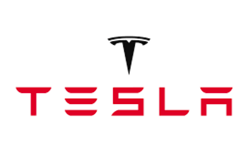
Tesla and SpaceX founder Elon Musk has a suggestion for humans who want to stay relevant in a future of artificial intelligence: merge with the machines.
"Over time I think we will probably see a closer merger of biological intelligence and digital intelligence," Musk said at the World Government Summit in Dubai, according to CNBC. "It's mostly about bandwidth, the speed of the connection between your brain and the digital version of yourself, particularly output."
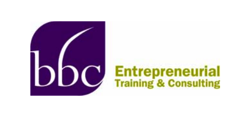
Last month, we outlined our top 10 do's and don'ts for getting your Phase I NIH proposal in shape and ready to submit before the April 5 deadline. This month we continue that theme by presenting what we have determined, over years of reviewing proposals, to be our top 10 brilliant ideas or stupid mistakes for Phase II proposals. Here are our favorites:

In labs testing how brain implants could help people with physical disabilities, tales of success can be bittersweet.
Experiments like those that let a paralyzed person swig coffee using a robotic arm, or that let blind people “see” spots of light, have proven the huge potential of computers that interface with the brain. But the implanted electrodes used in such trials eventually become useless, as scar tissue forms that degrades their electrical connection to brain cells (see “The Thought Experiment”).
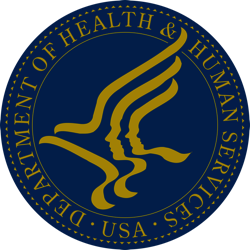
President Donald Trump’s new health secretary took office Friday after becoming the latest Cabinet nominee to eke out a confirmation victory in the bitterly divided Senate.
Vice President Mike Pence administered the oath of office to Tom Price, of Georgia, at the White House hours after the Senate confirmed him 52-47 in a party-line vote. That roll call came in the dead of night, thanks to Democrats’ tactic of forcing prolonged debates to broadcast their opposition to Trump and his team.

Cuddles, kisses, and caring conversations. These are key ingredients of our close relationships. Scientists are finding that our links to others can have powerful effects on our health. Whether with romantic partners, family, friends, neighbors, or others, social connections can influence our biology and well-being.